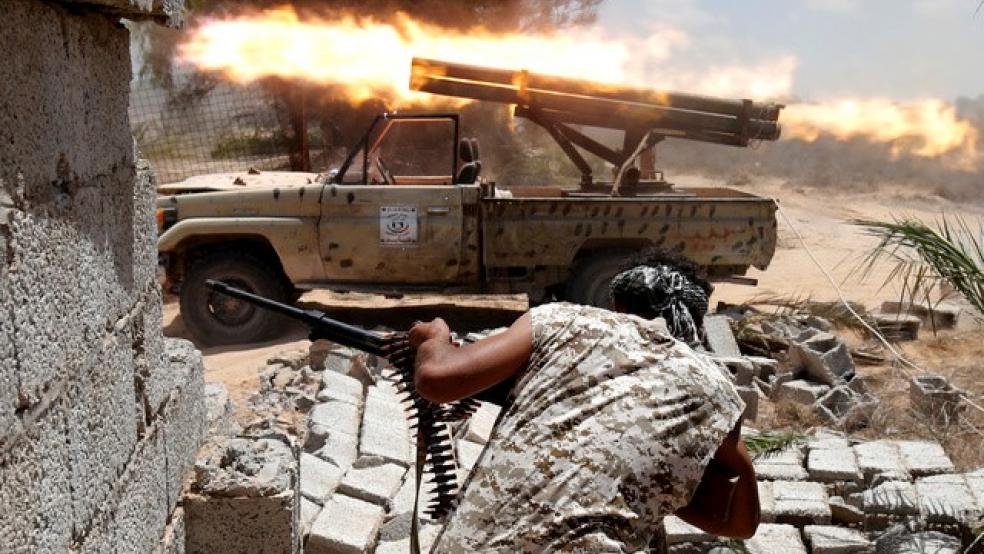The question in Sirte #Libya is not whether ISIS will be defeated. What comes after?

US warplanes launch bombing campaign on ISIS in Libya
Sitting in Tunis, it’s hard not to pay particular heed to what’s happening over the way – in Libya. More specifically, in Sirte.
As the world knows, the tough-bitten Misrata militia, which is aligned with Libya’s UN-backed government of national accord (GNA), is laboring to displace ISIS from Sirte. From August 1, the Misratans have been backed by American air strikes. They are also receiving advice and assistance from western special forces. As of mid-August, the jihadists were said to be barely holding on. By end-August, Libyan forces said that just one district of Sirte was still occupied by the militants.
It won’t be long, say those who know, before Sirte is captured back from the extremists and peace and harmony reigns anew in the coastal town that ISIS took over last year.
If only.
The question isn’t whether Sirte will fall, but what happens after it does?
It was only very recently that the UN’s envoy to Libya, Martin Kobler, admitted what everyone already knew. Namely, that the Tripoli-based GNA led by Faez Al Serraj enjoys only “crumbling” support. That General Khalifa Haftar and his men aren’t fans. That even the Misratans aren’t hugely in favour of the GNA. That dislodging ISIS from Sirte may not be the starting point of Libyan renewal.
Many blame the GNA (in my view, unfairly) for failing to turn Libya around. It hasn’t, they complain, manage to get public services up and running once again and rubbish-collectors aren’t out on the streets doing their job. The GNA isn’t able to ensure adequate power supply and currency notes in the banks. And it hasn’t managed to stabilise the economy.
Are they serious? How could it? The GNA is, at best, a stopgap arrangement that provides the figleaf of Libyan approval to outside forces as they pursue a coordinated “squeeze them” strategy to fight ISIS by hitting the group in Syria, Iraq and Libya all at the same time.
I’m sorry to intone I told you so, but on December 23, I wrote the following in my weekly National column, sketching out the rather dismal possibility for a post-ISIS situation in Sirte:
“So what is the point of a new bombing campaign in Libya? Once again, making it a theatre of war for the West may not help stabilise the country.
“The new ‘government’ is unlikely to be able to take control – and the oilfields – from the numerous armed militia, tribal groups and alliances. It may become unpopular for facilitating western air strikes, especially in the event of collateral damage.”

